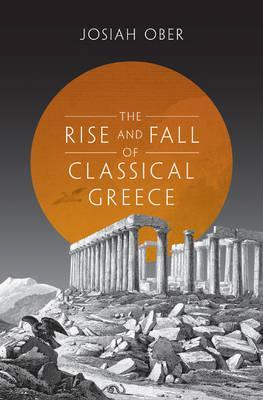Rise and Fall of Classical Greece

Rise and Fall of Classical Greece
Yet Philip and Alexander of Macedon were able to beat the Greeks in the Battle of Chaeronea in 338 BCE, a victory made possible by the Macedonians' appropriation of Greek innovations. After Alexander's death, battle-hardened warlords fought ruthlessly over the remnants of his empire. But Greek cities remained populous and wealthy, their economy and culture surviving to be passed on to the Romans--and to us. A compelling narrative filled with uncanny modern parallels, this is a book for anyone interested in how great civilizations are born and die. This book is based on evidence available on a new interactive website. To learn more, please visit:
PRP: 138.64 Lei
Acesta este Prețul Recomandat de Producător. Prețul de vânzare al produsului este afișat mai jos.
110.91Lei
110.91Lei
138.64 LeiLivrare in 2-4 saptamani
Descrierea produsului
Yet Philip and Alexander of Macedon were able to beat the Greeks in the Battle of Chaeronea in 338 BCE, a victory made possible by the Macedonians' appropriation of Greek innovations. After Alexander's death, battle-hardened warlords fought ruthlessly over the remnants of his empire. But Greek cities remained populous and wealthy, their economy and culture surviving to be passed on to the Romans--and to us. A compelling narrative filled with uncanny modern parallels, this is a book for anyone interested in how great civilizations are born and die. This book is based on evidence available on a new interactive website. To learn more, please visit:
Detaliile produsului









